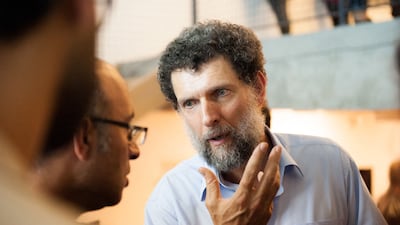European ministers will decide next month if they will intensify an already bitter dispute with Turkey over the continued detention of a civil society leader held without conviction since October 2017.
Ministers from the 47-nation Council of Europe are to meet on February 2 after Ankara ignored its demand to release Osman Kavala from prison. He was accused of financing 2013 anti-government protests and involvement in a 2016 coup plot.
Mr Kavala has denied all the accusations and the 64-year-old's supporters view his plight as a symbol of the purges President Recep Tayyip Erdogan unleashed after the coup attempt.
The council told Turkey it had until Wednesday of this week to release Kavala or provide legal justification for keeping him behind bars. The council confirmed it had received a letter from the Turkish government but said ministers will press ahead with deciding their next steps at the meeting.
If two thirds of the ministers of member countries agree, the case will be shunted back to the European Court of Human Rights which first ruled that Mr Kavala’s detention was politically motivated in 2019.
The council has already launched informal infringement proceedings against Ankara — only the second time this has happened in the last 12 years. Previous action by the council led to opposition politician Ilgar Mammadov receiving compensation after serving more than five years behind bars in Azerbaijan.
The Council of Europe's infringement procedures against Turkey could last months and possibly years. But they could ultimately see Turkey losing its voting rights or even being kicked out of the pan-European rights body that it joined in 1950.
An appeal from 10 Western countries last October — including the US and major European powers — for Turkey to release Mr Kavala triggered a diplomatic standoff that nearly saw Ankara expel their ambassadors.
Turkey's foreign ministry said it views the council's actions as “interference” in an ongoing court case.
Government critics say Turkey's standoff with the body underscores the profound erosion of human rights under Mr Erdogan's two-decade rule.
Madeleine Joelson, executive director of the US-based Turkish Democracy Project, said: “In defying the Council of Europe’s request for the Turkish government to release Osman Kavala, the Turkish President has made clear his intention to contravene international law and violate human rights regardless of consequence.”


